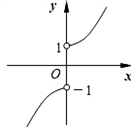
下载APP

【单选题】


Oceanography has been defined as "The application of all sciences to the study of the sea".
Before the nineth century, scientists with an interest in the sea were few and far between. Certainly Newton considered some theoretical aspects of it in his writings, but he was reluctant to go to sea to further his work.
For most people the sea was remote, and with the exception of early intercontinental travelers or others who earned a living from the sea, there was little reason to ask many questions about it, let alone to ask what lay beneath the suce. The first time that the question "What is at the bottom of the oceans" had to be answered with any commercial consequence was when the laying of a telegraph cable from Europe to America was proposed. The engineers had to know the depth profile (起伏形状) of the route to estimate the length of cable that had to be manufactured.
It was to Maury of the US Navy that the Atlantic Telegraph Company turned, in 1853, for information on this matter. In the 1840s, Maury had been responsible for encouraging voyages during which soundings (测深) were taken to investigate the depths of the North Atlantic and Pacific Oceans. Later, some of his findings aroused much popular interest in his book The Physical Geography of the Sea .
The cable was laid, but not until 1866 was the connection made permanent and reliable. At the early attempts, the cable failed and when it was taken out for repairs it was found to be covered in lining growths, a fact which defied contemporary scientific opinion that there was no life in the deeper parts of the sea.
Within a few years oceanography was under way. In 1872 Thomson led a scientific expedition (考察), which lasted for four years and brought home thousands of samples from the sea. Their classification and ysis occupied scientists for years and led to a five-volume report, the last volume being published in 1895. It was ______ that asked Maury for help in oceanographic studies.
A.
the American Navy
B.
some early intercontinental travelers
C.
those who earned a lining from the sea
D.
the company which proposed to lay an undersea cable
参考答案:


参考解析:




刷刷题刷刷变学霸
举一反三

【单选题】通常情况下,测深辨位的准确性与下列哪些因素有关()。
A.
测深和潮高的改正的准确性
B.
计划航线上水深变化规律
C.
海图上所标水深点位置和水深的准确性
D.
以上都是





